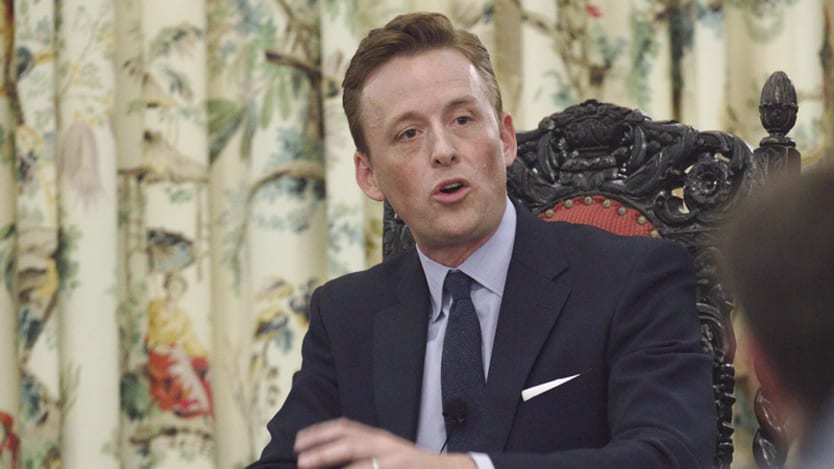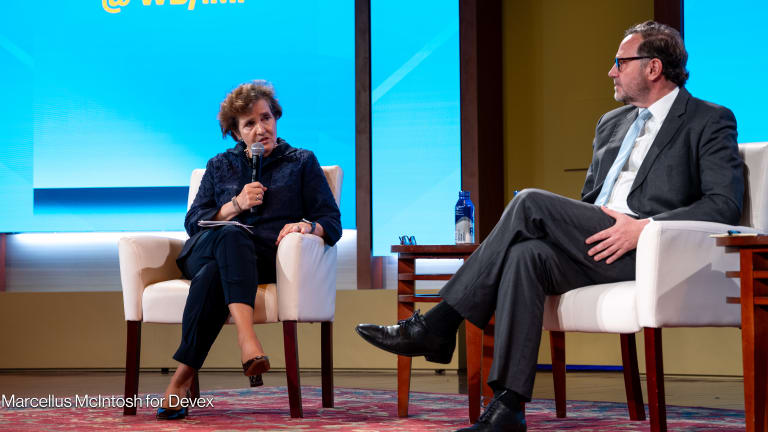MCC CEO nominee would bring political ties, but some question expertise

WASHINGTON — The announcement of a nominee to lead the Millennium Challenge Corporation was welcome news in the development community, as the agency has been operating with an acting chief executive officer for about a year, but some raised questions about the nominee’s seeming lack of development expertise.
White House adviser to be nominated for top job at MCC
The Trump administration plans to nominate Sean Cairncross, a top White House official, to lead the Millennium Challenge Corporation.
The White House announced Thursday that Sean Cairncross, deputy assistant to the president and senior adviser to the White House chief of staff, will be the administration’s nominee to the top job at MCC, an independent United States aid agency that provides grants to promote economic growth, poverty reduction, and good governance.
Following the announcement, a number of people on social media pointed out that Cairncross seemed to lack development or foreign policy experience, but others, in conversation with Devex, have pointed out that some other MCC CEOs haven’t had that much development experience either coming in, and that his political connections should be useful for the agency. While ideally perhaps a nominee would have experience and political ties, several people told Devex that just having a CEO in place is critical for the agency, and will allow it to move beyond the sort of holding pattern it has been in for the past year.
“The most important thing for us is to have leadership in place” to help set the direction of the agency, said Mima Nedelcovych, the CEO of the Initiative for Global Development and the co-chair of MCC’s advisory council. He told Devex that he looks forward to seeing Cairncross confirmed as soon as possible.
While having a new CEO in place is important, Reid Hamel, a senior fellow with the CSIS Global Food Security Project, told Devex that she was disappointed with his lack of experience. MCC is an important institution and its work is quite technical, so it would benefit from someone with direct experience to draw from, she said.
“It is in our collective interest to wring out the best return on investment from MCC, so why the White House wouldn’t choose to nominate someone for whom the learning curve wouldn’t be so steep is a concern,” Hamel said.
Most MCC CEOs have come from the private sector and not had a “tremendous depth of experience in development,” said Sarah Rose, a policy fellow at the Center for Global Development, adding that the nomination is not a huge break from past appointments.
“In the absence of very specific development experience in the past, other kinds of experience can be brought to bear in a positive way for the MCC,” she said, adding that his experience working in the White House and with Congress could help MCC build and maintain both financial and political support.
“It’s always important for top leadership to be able to operate politically with members of Congress,” and MCC has some legislative priorities including allowing regional compacts and how the agency could expand its impact, she said.
Nedelcovych echoed her remarks, saying that what is truly important is that the CEO has leadership qualities, can help set policy, and can communicate with leadership, including the White House on behalf of the agency, which is difficult for an acting CEO.
The advisory council has had a letter to the new CEO ready since April with a number of recommendations, and will look forward to sharing it with Cairncross if and when he is confirmed, he said. Among the recommendations is that MCC play its role as a catalyst to help countries become investment ready. The analysis of constraints and subsequent compacts help enable economic growth, and MCC should work with other U.S. agencies to ensure that other development finance funds can follow on the heels of MCC investments and bring in commercial investors. MCC is also not well known within the U.S., and the new CEO should help work to make American companies more familiar with MCC and its work, Nedelcovych said.
Jonathan Nash has been serving as the acting CEO and will continue to serve in the post until a permanent CEO is confirmed.
What's the future of U.S. aid and development policy under the Trump administration? Read Devex news and analysis.
Search for articles
Most Read
- 1
- 2
- 3
- 4
- 5








